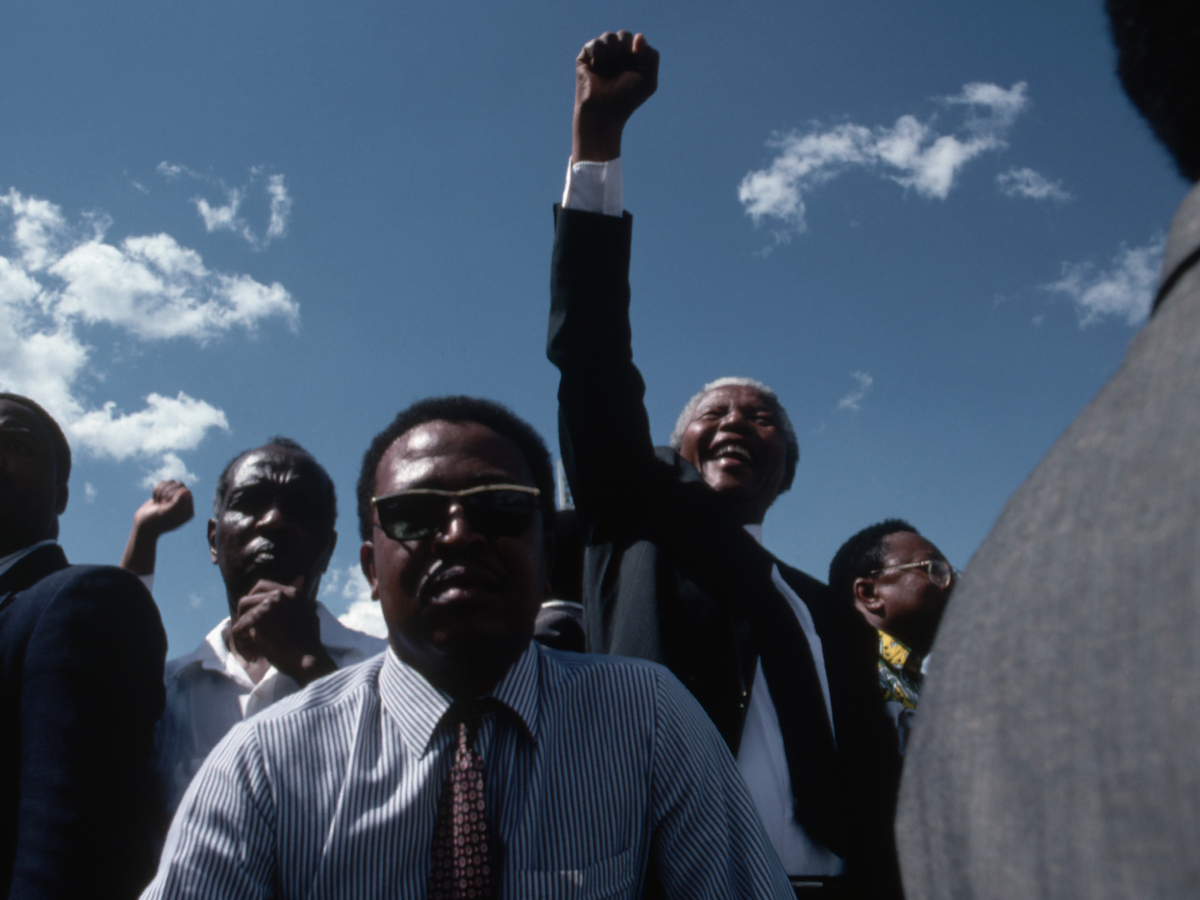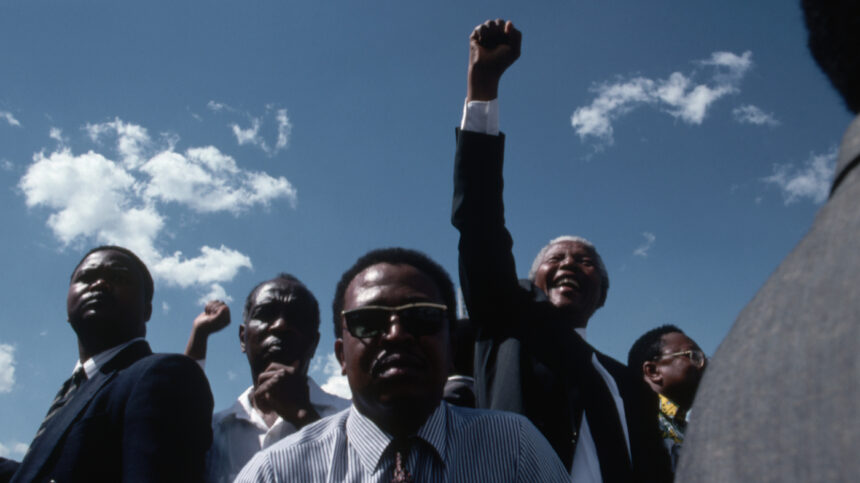
Bodyguards keep close watch as Nelson Mandela celebrates his victory in the South African presidential elections of 1994. As the head of the African National Congress, he helped to build the country’s new multiracial government and to establish the free elections in which he won his presidency.
David Turnley/Corbis/VCG
hide caption
toggle caption
David Turnley/Corbis/VCG

Bodyguards keep close watch as Nelson Mandela celebrates his victory in the South African presidential elections of 1994. As the head of the African National Congress, he helped to build the country’s new multiracial government and to establish the free elections in which he won his presidency.
David Turnley/Corbis/VCG
Three decades ago, South Africa held its first democratic election, closing the door on the apartheid era.
And Nelson Mandela was elected its first Black president.
Today, the country is still led by Mandela’s political party – the African National Congress. But polls show that voters are growing increasingly dissatisfied with the party’s leadership, and next month’s national elections could lead to the ANC having to share power with opposition parties.
Thirty years ago, South Africa became an emblem of a multiracial democracy. Decades on, how is that legacy holding up?
For sponsor-free episodes of Consider This, sign up for Consider This+ via Apple Podcasts or at plus.npr.org.
Email us at considerthis@npr.org.
This episode was produced by Jonaki Mehta and Megan Lim.
It was edited by Courtney Dorning.
Our executive producer is Sami Yenigun.

